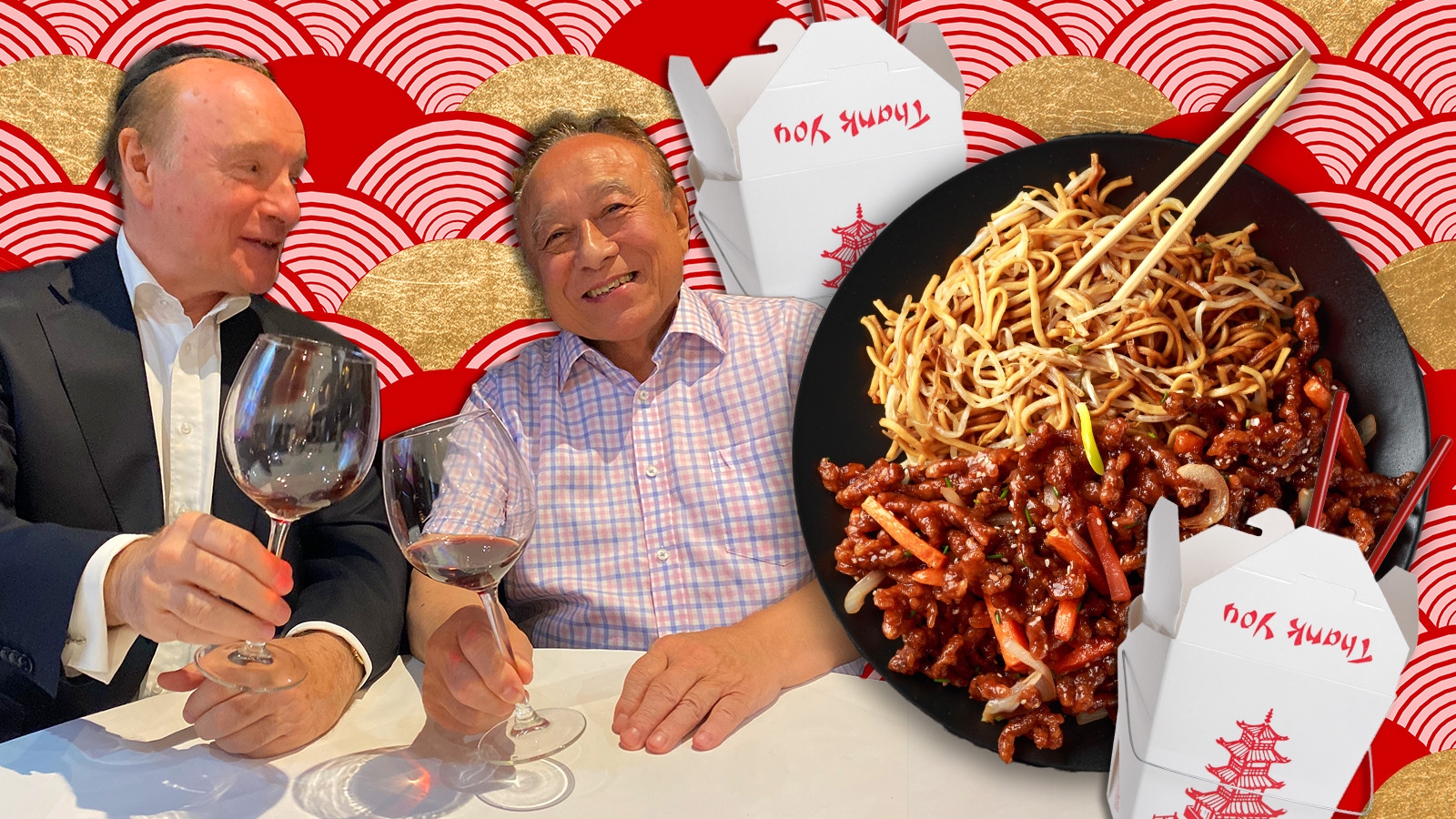Kaifeng Chinese restaurant is a British Jewish institution. Since it opened in 1986, the kosher North London spot has hosted British prime ministers, chief rabbis and members of the Israeli Knesset. Its signature decor — with mahogany paneling, rich green carpets and photos of the original Kaifeng community, and a large portion of its extensive menu remain unchanged. And people can’t get enough.
So what’s the secret to Kaifeng’s success, beyond the fact that Chinese food is one of Britain’s major food groups?
Well, the food and service is great. Co-owners Norman Han and Philip Pell greet their guests as old friends, as they themselves are. Their partnership began after a chance meeting in 1970. Pell (an advertising executive) was responsible for advertising Han’s (a restauranter from Liverpool) first restaurant, Joy King Lau, in London’s Chinatown. They went on to open Kaifeng together.
“Kaifeng was opened at a time when limited kosher food was available and even now, 38 years later, no one has rivaled Kaifeng,” Pell told me over a fabulous dinner that included all the restaurant’s hits: their famous Cantonese-style crispy chili beef, honey chicken and hoisin duck.
The Nosher celebrates the traditions and recipes that have brought Jews together for centuries. Donate today to keep The Nosher's stories and recipes accessible to all.
But kosher aside, what sets the restaurant apart is that it’s rooted in Jewish history.
When thinking of the name of the restaurant, Pell and Han told me it was a no-brainer to call it Kaifeng after the Persian Jews who made their home in Kaifeng, in China’s Henan province, in 960-1279. Originating in Iran, this community followed the Silk Route across the continent until the silk ran out in China, where they settled.
It is reported that though the community was small, around 2,500, they had a beautiful synagogue, which mirrored the architecture of Chinese temples and was several football fields in size. The complex included a mikvah, classrooms and many written materials. Observing Shabbat and the festivals, they even had a butcher to slaughter animals in accordance with kosher laws.
On Passover, the Jews of Kaifeng ate Chinese pancakes (AKA Mandarin or Moo Shu pancakes). “It’s not exactly matzah, but it is unleavened,” Shi Lei, descendant of the original Persians who settled in Kaifeng, said on a speaking tour that took him across North America in 2010.
“The light of Judaism never went out and we always knew we were Jewish because our parents and grandparents told us. They told us we are Jews; we are from Israel and this information is never forgotten,” Shi Lei said.
With our inherent love of food, it’s no surprise that the Jews left a trail of dishes, which are still enjoyed in many Chinese regions today. Like steamed buns called Kaifeng xiao long bao, stuffed with many different meats and vegetables, and Four Treasures, a complex dish involving chicken, duck, pigeon and quail. Carp fish was not restricted to Ashkenazi Jews and their gefilte; it was much loved by the Kaifeng community, too, who fried it whole and served it in a fragrant sauce, covered with crispy noodles.
Though the menu at Kaifeng restaurant is more reminiscent of the traditional Cantonese cuisine that the British palette is used to, they nod to their Kaifeng legacy with several dishes, including Henan-style lamb and chicken, marinated in cumin, hoisin and chillies, seared and served in lettuce cups — truly delicious!
The Kaifeng community practiced their customs for several centuries before they slowly assimilated into Chinese culture. Meanwhile, the Yellow River, which travels through nine Chinese provinces and has always been prone to flooding, took its toll. The first synagogue was swept away by floods in 1461 and rebuilt, only to be destroyed by fire in 1600. A deliberate rupture of the Yellow River to end a siege of the city by rebel forces led to the third synagogue being flooded in 1642.
It was the collapse of the third synagogue from the damage around 1850 that led to the downfall of the community. However, as the community declined, the Baghdadi Jews of Shanghai stepped in, and several members of the Kaifeng community moved to Shanghai. They were employed by the infamous Sasoon family who had broadened their business from Iraq to Bombay and then Shanghai.
The original community may have little presence in Kaifeng, but the Jewish spirit lives on generations later through Kaifeng restaurant, which proudly showcases this little-known, fascinating slice of Jewish culture.



